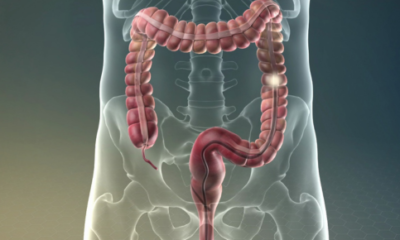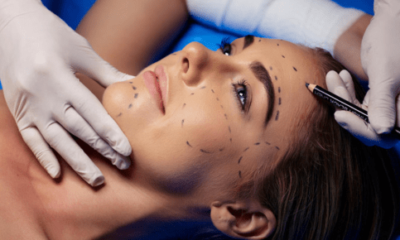Beauty
Effective Skin Care Practices
Taking care of your skin is essential for maintaining its health and appearance. Here are 25 effective skin care practices to keep your skin glowing and radiant:

1.Cleansing Daily:
Cleanse your skin twice daily with a gentle cleanser to remove dirt, oil, and impurities.
2.Hydrating:
Use a moisturizer suitable for your skin type to keep your skin hydrated and supple.
3.Sun Protection:
Apply a broad-spectrum sunscreen with SPF 30 or higher every day, even on cloudy days.
4.Exfoliating Weekly:
Exfoliate your skin once or twice a week to remove dead skin cells and reveal smoother, brighter skin.
5.Using Serums:
Incorporate serums containing active ingredients like vitamin C or hyaluronic acid to target specific skin concerns.
6.Eye Cream:
Use an eye cream to hydrate the delicate skin around your eyes and minimize the appearance of fine lines and wrinkles.
7.Eating a Healthy Diet:
Consume a balanced diet rich in fruits, vegetables, and omega-3 fatty acids to nourish your skin from the inside out.
8.Drinking Water:
Stay hydrated by drinking plenty of water throughout the day to keep your skin hydrated and glowing.
9.Getting Enough Sleep:
Aim for 7-8 hours of sleep each night to allow your skin time to repair and rejuvenate.
10.Stress Management:
Practice stress-reducing techniques such as meditation or yoga to prevent stress-related skin issues.
11.Avoiding Harsh Ingredients:
Avoid skincare products containing harsh ingredients like alcohol or fragrances that can irritate your skin.
12.Using Gentle Cleansing Tools:
Opt for gentle cleansing tools like soft brushes or konjac sponges to avoid damaging your skin barrier.
13.Patting, Not Rubbing:
Pat your skin dry with a clean towel instead of rubbing to prevent irritation and minimize moisture loss.
14.Using Lukewarm Water:
Wash your face with lukewarm water instead of hot water to avoid stripping your skin of its natural oils.
15.Using Non-Comedogenic Products:
Choose non-comedogenic skincare and makeup products to prevent clogged pores and breakouts.
16.Wearing Protective Clothing:
Wear hats, sunglasses, and protective clothing to shield your skin from the sun’s harmful UV rays.
17.Regularly Changing Pillowcases:
Change your pillowcases regularly to prevent bacteria and oil buildup that can lead to breakouts.
18.Avoiding Touching Your Face:
Avoid touching your face throughout the day to minimize the transfer of bacteria and oil.
19.Using a Humidifier:
Use a humidifier in your home to add moisture to the air, especially during the dry winter months.
20.Incorporating Antioxidants:
Use skincare products containing antioxidants like green tea or vitamin E to protect your skin from environmental damage.
21.Practicing Proper Shaving Techniques:
Shave with the grain of your hair using a sharp razor and shaving cream to prevent irritation and ingrown hairs.
22.Using Lip Balm:
Apply a nourishing lip balm with SPF to protect your lips from sun damage and keep them hydrated.
23.Avoiding Picking at Blemishes:
Resist the urge to pick or squeeze blemishes to prevent scarring and further inflammation.
24.Regular Skin Checks:
Perform regular skin checks to monitor moles or changes in your skin and consult a dermatologist if you notice anything concerning.
25.Consistency:
Be consistent with your skincare routine and give it time to show results, as skincare is a long-term commitment.
By incorporating these effective skin care practices into your daily routine, you can achieve healthier, more radiant skin and maintain its youthfulness for years to come.
Beauty
Building Strong Teeth – Expert Advice
Maintaining strong teeth is crucial for overall oral health and well-being. Here are 25 expert tips to help you build and maintain strong teeth:

1.Brush Twice Daily:
Brush your teeth twice a day with fluoride toothpaste to remove plaque and prevent decay.
2.Floss Regularly:
Floss between your teeth daily to remove food particles and plaque from hard-to-reach areas.
3.Use Fluoride Toothpaste:
Choose a fluoride toothpaste to strengthen tooth enamel and prevent cavities.
4.Limit Sugary Foods:
Minimize consumption of sugary snacks and beverages, as sugar can contribute to tooth decay.
5.Eat a Balanced Diet:
Consume a diet rich in calcium, vitamins, and minerals to support strong teeth and gums.
6.Avoid Sticky Foods:
Avoid sticky candies and snacks that can cling to teeth and promote decay.
7.Drink Water:
Drink plenty of water throughout the day to rinse away food particles and keep your mouth hydrated.
8.Chew Sugar-Free Gum:
Chew sugar-free gum after meals to stimulate saliva production and neutralize acids that can damage teeth.
9.Visit Your Dentist Regularly:
Schedule regular dental check-ups and cleanings to detect any issues early and prevent dental problems.
10.Wear a Mouthguard:
Wear a mouthguard during sports or activities that pose a risk of dental injury to protect your teeth from damage.
11.Avoid Using Teeth as Tools:
Refrain from using your teeth to open bottles or packages to prevent chipping or cracking.
12.Quit Smoking:
Quit smoking or using tobacco products, as they can stain teeth, cause gum disease, and increase the risk of oral cancer.
13.Rinse with Mouthwash:
Use an antimicrobial mouthwash to reduce bacteria and freshen breath, but avoid ones with alcohol, which can dry out your mouth.
14.Limit Acidic Foods:
Limit consumption of acidic foods and beverages like citrus fruits and sodas, as they can erode tooth enamel.
15.Brush Properly:
Use proper brushing technique, brushing each tooth’s surface, and along the gumline for at least two minutes.
16.Consider Dental Sealants:
Ask your dentist about dental sealants, a protective coating applied to the chewing surfaces of molars to prevent decay.
17.Use a Soft-Bristled Toothbrush:
Choose a soft-bristled toothbrush to avoid damaging tooth enamel and irritating gums.
18.Address Teeth Grinding:
If you grind your teeth at night, consider wearing a nightguard to protect your teeth from damage.
19.Practice Good Oral Hygiene:
Maintain good oral hygiene habits, including brushing, flossing, and rinsing, to keep your mouth healthy.
20.Treat Tooth Sensitivity:
If you experience tooth sensitivity, use a toothpaste formulated for sensitive teeth and avoid extreme temperatures.
21.Monitor Your Diet:
Be mindful of your diet’s impact on your teeth and limit acidic or sugary foods and drinks.
22.Teach Children Proper Oral Care:
Start teaching children proper oral care habits from a young age to establish lifelong healthy habits.
23.Consider Dental Treatments:
Explore dental treatments like fluoride treatments or dental sealants to strengthen and protect your teeth.
24.Practice Relaxation Techniques:
If you clench or grind your teeth due to stress, practice relaxation techniques to reduce tension.
25.Seek Professional Advice:
Consult with your dentist for personalized advice and recommendations tailored to your specific oral health needs.
Incorporating these expert tips into your daily routine can help you build and maintain strong teeth for a lifetime of optimal oral health.
Beauty
Effective Hair Care Practices
Maintaining healthy and beautiful hair requires a consistent and mindful approach. Here are 25 effective hair care practices to help you achieve strong, shiny, and luscious locks:

1.Regular Washing:
Wash your hair regularly with a gentle shampoo suitable for your hair type to remove dirt, oil, and product buildup.
2.Conditioning:
Use a conditioner after shampooing to moisturize and detangle your hair, focusing on the mid-lengths to ends.
3.Deep Conditioning Treatments:
Incorporate deep conditioning treatments once a week to nourish and hydrate your hair, promoting strength and elasticity.
4.Scalp Massage:
Massage your scalp regularly to stimulate blood flow and promote hair growth, using gentle circular motions with your fingertips.
5.Avoiding Hot Water:
Rinse your hair with lukewarm or cool water instead of hot water to prevent stripping away natural oils and causing dryness.
6.Limiting Heat Styling:
Minimize heat styling tools such as flat irons and curling wands to prevent heat damage and breakage, opting for air-drying or heat protectants when necessary.
7.Using a Wide-Tooth Comb:
Detangle your hair with a wide-tooth comb when wet to prevent breakage and minimize damage.
8.Trimming Regularly:
Trim your hair every 6-8 weeks to remove split ends and promote healthy hair growth.
9.Protecting from UV Rays:
Wear a hat or use products with UV protection when exposed to the sun to prevent sun damage and color fading.
10.Using Silk or Satin Pillowcases:
Sleep on silk or satin pillowcases to reduce friction and prevent hair breakage and frizz.
11.Incorporating Hair Masks:
Apply a hydrating or nourishing hair mask once a week to deeply condition and repair damaged hair.
12.Avoiding Tight Hairstyles:
Avoid tight hairstyles like tight ponytails or braids that can cause tension and breakage along the hairline.
13.Using Sulfate-Free Shampoos:
Opt for sulfate-free shampoos to gently cleanse your hair without stripping away natural oils, ideal for dry or color-treated hair.
14.Protecting from Chlorine:
Wear a swim cap or rinse your hair with fresh water before swimming to protect it from chlorine damage.
15.Eating a Balanced Diet:
Consume a balanced diet rich in vitamins, minerals, and protein to nourish your hair from the inside out.
16.Drinking Plenty of Water:
Stay hydrated by drinking plenty of water throughout the day to keep your hair hydrated and healthy.
17.Limiting Chemical Treatments:
Minimize the use of chemical treatments such as perms or relaxers, as they can weaken and damage your hair over time.
18.Using Natural Oils:
Incorporate natural oils like coconut oil or argan oil into your hair care routine to moisturize and nourish your hair.
19.Protecting from Environmental Damage:
Shield your hair from environmental damage by wearing a hat or scarf in harsh weather conditions.
20.Avoiding Over-Washing:
Avoid washing your hair too frequently, as it can strip away natural oils and lead to dryness and damage.
21.Using a Clarifying Shampoo:
Use a clarifying shampoo once a month to remove product buildup and impurities from your hair and scalp.
22.Patting Dry:
Gently pat your hair dry with a soft towel instead of rubbing to prevent breakage and minimize frizz.
23.Pre-Shampoo Treatments:
Apply a pre-shampoo treatment like coconut oil or aloe vera gel to your hair before washing to protect it from drying out.
24.Protecting from Heat:
Use heat protectant products before using heat styling tools to minimize damage and breakage.
25.Consulting a Professional:
Consult a hairstylist or trichologist if you experience hair loss, scalp issues, or concerns about your hair’s health.
By incorporating these effective hair care practices into your routine, you can promote healthy hair growth, prevent damage, and achieve the luscious locks you’ve always desired.
-

 Beauty2 years ago
Beauty2 years agoBuilding Strong Teeth – Expert Advice
-

 Health2 years ago
Health2 years agoSouth Korean Plastic Surgery Before and After – Transformations and Trends
-

 Dental2 years ago
Dental2 years agoTop 5 Dental Hospitals – India
-

 Beauty2 years ago
Beauty2 years agoEffective Hair Care Practices
-

 Fitness2 years ago
Fitness2 years agoTips for Healthy and Active Living
-

 Health2 years ago
Health2 years agoTop 5 Cardiac Hospitals – Australia
-

 Health2 years ago
Health2 years ago25 Effective Ways to Treat Skin Allergies at Home
-

 Health2 years ago
Health2 years agoThe Cost of Full Body Plastic Surgery in India – What You Need to Know


















